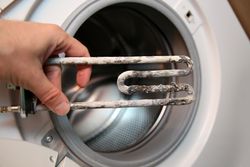4 Commonly Asked Questions About Hard Water

If you’re unfamiliar with hard water, you might already be experiencing some problems it causes without being aware. Fortunately, a water softener can lessen some of these problems by improving the quality of your water supply. But before you can decide on the right course of action, you’ll likely have a few questions about the issue.
A Brief Guide to Hard Water
What makes water hard?
Groundwater becomes hard when it moves through soil and rocks, absorbing minerals like calcium and magnesium along the way. The more mineral present in your water supply, the harder it is.
How is hardness measured?
For water to classify as hard, it must have more than 60 milligrams of calcium carbonate to a liter. Measurement sometimes is based on grains per gallon or GPG, with one grain equivalent to 17.1 milligrams of calcium or magnesium in a liter. A GPG of 7 or above is considered hard water.
If you want to know the hardness of your water supply, you can check the annual drinking water quality report released by your municipal or city provider. If you have a private well, you can hire a professional to test it for hardness and other possible contaminants.
Does it matter if I have hard water?
 In general, hard water is not harmful to your health because it contains essential minerals the body needs. However, its effects can be harsh to your plumbing, fixtures, clothes, dinnerware, and skin.
In general, hard water is not harmful to your health because it contains essential minerals the body needs. However, its effects can be harsh to your plumbing, fixtures, clothes, dinnerware, and skin.
The most telltale sign that you have hard water is scale buildup on glasses, dishes, appliances, and fixtures. It appears as a whitish, powdery substance that sticks stubbornly on places where you run water. Scaling causes clogging in the pipes because of the accumulated mineral deposits inside.
With hard water, activities like taking a bath, washing clothes, and cleaning take longer than usual. The minerals react with the soap, forming a scum and preventing it from lathering. Rinsing it off is difficult as well, so you may experience dry skin, sticky hair, and duller-looking clothes.
Is there a way to fix this?
Water softeners get rid of the minerals that make the water hard. There are many methods to do this, but the most common is through ion exchange. This method extracts excess minerals, using spherical resin beads charged with sodium ions. As hard water flows through the resin, the positively charged beads attract the negatively charged minerals, removing them from the water.
Although hard water is safe to use, it can still cause problems in your home. For an efficient water softener, turn to Kandi Water Conditioning, Inc. Proudly serving the entire Kandiyohi County, MN, they’ve offered an impressive selection of water conditioning solutions, such as filtrations and water softener systems since 1995. Call (320) 796-6020 for estimates on water softener installation or visit them online.
About the Business
Have a question? Ask the experts!
Send your question

